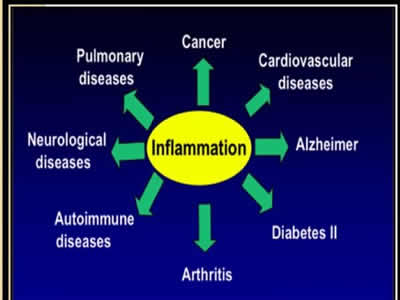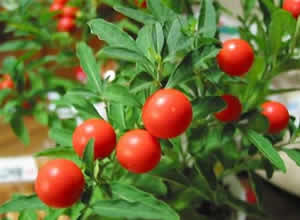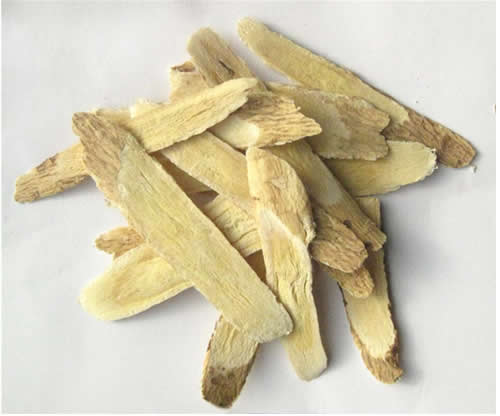Boswellia serrata (Indian frankincense) has been used in Traditional Ayurvedic Medicine for thousand years. The main component is boswellic acid. Extracts are usually standardized to contain 37.5–65% boswellic acids.
Boswellia Serrata and Cancer
Boswellic acids induce antiproliferation, differentiation and apoptosis in leukemia cell lines. They exert cytotoxic effects on established human glioblastoma and leukemia cell lines, as well as on primary human meningioma cells. Boswellia serrata have been shown to be both cytotoxic to glioma cells and anti-proliferative in a dose-dependent manner during studies with rats. Boswellic acid has been found to display antitumor activity in cervical, bladder, and other cancer cell lines as well as anti-inflammatory activity. Scientists at the MD Anderson Cancer Center found that boswellia serrata deactivates the key receptor on cancer cells that allows the cancer to spread and invade. In a study reported in the June 2011 edition of the International Journal of Cancer, researchers found that boswellia, can inhibit the growth and metastasis of human colon cancer cells by the downregulation of cancer-associated biomarkers.
A study performed at the “Neurosurgical Clinic of Justus-Liebig University” and reported in 2000 in the Journal of Neuro-oncology, studied the effects of boswellia serrata on rats with induced glioma. Survival time in the highest-dosage group was over twice as long as those not receiving therapy. Scientists have examined boswellia serrata extract against 5 different types of human leukemia cells and 2 types of human brain cancer cells. They found that boswellia extract inhibited the proliferation of these cancerous cells by prompting them to self-destruct. Researchers from the “Cleveland Clinic” found that an extract of boswellia serrata was effective against human meningioma cells, which are typically benign tumors of the brain’s covering. Boswellia extract worked by decreasing the cells’ ability to spread and by killing the tumor cells.
In a study on mice with implanted tumors found that boswellia reduced tumor size and increased survival time. A detailed analysis of the boswellia-treated tumors demonstrated that boswellia serrata activated gene signals that caused tumor cell death. The Scientists concluded, “The present study sheds light on the potent antitumor property of the boswellic acid and can be extended further to develop therapeutic protocols for treatment of cancer.” At the university hospitals of Bochum and Giessen, patients with gliome tumors were administered 3600 mg Boswellia. Within a few days, many symptoms associated with brain tumors, were greatly lessened. In a study of 25 patients were administered a extract of boswellia for one week and the tumors were then surgically removed. About half the patients had such significant regressions that the tumors had all but disappeared. This study was conducted by neurosurgeon Dr. Michael Winking. Boswellia serrata may reduce fluid retention associated with brain tumours. In a study reported in the Feb2011 edition of Cancer 44 people who suffered from cerebral tumors were either given radiotherapy with 4200 mg per day of boswellia or a placebo. 60% of those who received the radiotherapy and the boswellia serrata found more than a 75% diminution in their cerebral edema. In 2002 the European Medicines Agency classified boswellia serrata gum resin extract (BSE) as an ‘orphan drug’ for the cure of peritumoral brain edema BSE.
 Standardised extract of
Standardised extract of  In a study published in Indian Journal of Physiology and Pharmacology, ashwagandha was found to be as effective as diazepam for cases of anxiety and depression associated. In a trial, 30 patients suffering from anxiety neurosis were administered a dose of 40 ml per day for a month. The research concluded that most of anxiety symptoms, panic attacks and phobia were significantly relieved. Oral administration of ashwagandha for 5 days suggested anxiety-relieving effects similar to those achieved by the anti-anxiety drug
In a study published in Indian Journal of Physiology and Pharmacology, ashwagandha was found to be as effective as diazepam for cases of anxiety and depression associated. In a trial, 30 patients suffering from anxiety neurosis were administered a dose of 40 ml per day for a month. The research concluded that most of anxiety symptoms, panic attacks and phobia were significantly relieved. Oral administration of ashwagandha for 5 days suggested anxiety-relieving effects similar to those achieved by the anti-anxiety drug  In a study of 176 people undergoing chemotherapy for cancers of the gastro-intestinal tract, ginseng and
In a study of 176 people undergoing chemotherapy for cancers of the gastro-intestinal tract, ginseng and